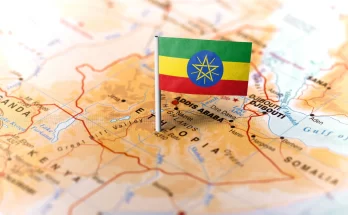Originally published by Bowmans Law Firm.
In a significant ruling for the Mauritian tax landscape, the Supreme Court has overturned a previous decision by the Assessment Review Committee (ARC), providing greater clarity on the eligibility criteria for an 80% partial tax exemption on interest income under the Income Tax Act 1995 (ITA).
This judgment is expected to impact businesses generating incidental interest income and establishes a key precedent for future tax interpretations.
Background
In 2023, the ARC ruled against Alteo Energy Ltd (Alteo) regarding its claim for an 80% partial exemption on interest income under the ITA. The ARC’s decision was based on the argument that the interest income was not derived from Alteo’s core income-generating activities (CIGA).
As a result, the ARC introduced an additional requirement that companies must have financing as a core business activity to qualify for the exemption, effectively restricting the scope of the partial exemption.
Under the ITA, interest income qualifies for an 80% exemption if the recipient entity meets the conditions outlined in Regulation 23D (2) of the Income Tax Regulations 1996 (ITR).
These conditions include:
- Conducting CIGA in Mauritius,
- Employing a sufficient number of qualified personnel to carry out its CIGA,
- Incurring expenses proportional to the level of activities.
Additionally, the ITR specifies that CIGA related to interest income includes functions such as agreeing on funding terms, determining financing conditions, monitoring agreements, and managing financial risks.
South African Rand Weakens as Markets Await Ramaphosa’s Economic Address
Supreme Court Ruling
Alteo challenged the ARC’s decision in the Supreme Court, which delivered its judgment on January 31, 2025, setting aside the ARC’s interpretation.
The Supreme Court held that Regulation 23D (2) is explicit in its language, specifying only three conditions that must be satisfied for a company to qualify for the partial exemption.
It ruled that there is no legal basis for imposing an additional requirement that the production of interest income must be a core business activity of the company.
The Court emphasized that the term CIGA should be understood in both its natural and statutory meanings, referring to any business activity that generates the company’s main income.
This broader interpretation ensures that businesses earning incidental interest income can still qualify for the exemption, provided they meet the regulatory requirements.
Implications
The Supreme Court’s ruling removes uncertainty surrounding the application of partial exemptions on interest income and prevents restrictive interpretations that could limit businesses’ eligibility.
This decision reinforces the principle that tax regulations should be applied as explicitly stated in the law, without additional conditions being introduced through administrative interpretation.
For companies operating in Mauritius, this judgment provides a more stable and predictable tax environment, particularly for those earning interest income as a secondary activity.
The ruling affirms that businesses that meet the established conditions under Regulation 23D (2) can confidently apply for the 80% tax exemption without concern for additional criteria being imposed.
As Mauritius continues to refine its tax framework to maintain its competitiveness as a financial hub, this decision underscores the importance of legal certainty and the protection of taxpayers’ rights under statutory provisions.




